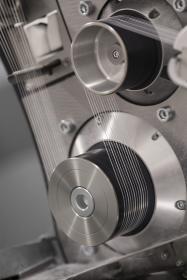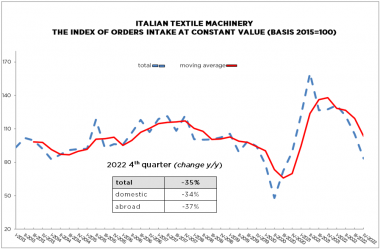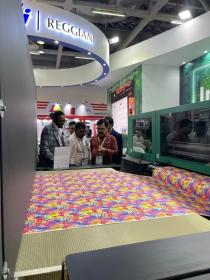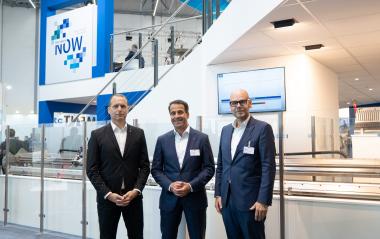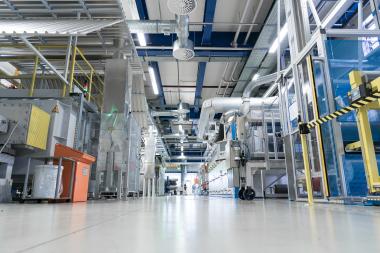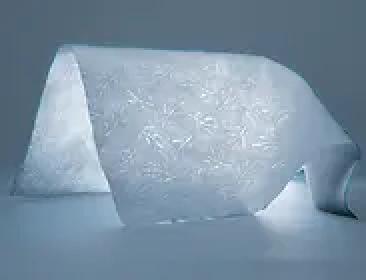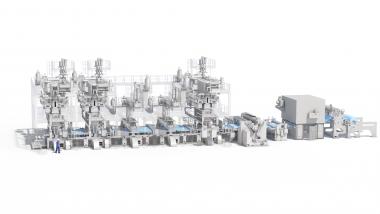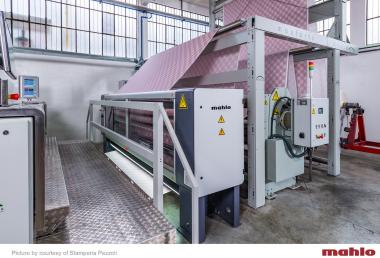Oerlikon Barmag: Manufacturing high-titer products using the POY and DTY process optimized
-
Longer parking times for greater efficiency
Since 2018, Oerlikon Barmag has been offering the market’s only currently available concept for high-end home textile applications using the POY and DTY process. The spinning concept with the WINGS HD winding unit in conjunction with an automatic eAFK Big V Multispindle texturing machine manufactures high-titer yarns with maximum machine efficiency.
“We have correspondingly modified WINGS HD in order to once again better align the increased requirements of these special yarns to the spinning process and make everyday production even simpler for our customers”, comments Stephan Faulstich, POY Process Technology Manager. The parking times are extremely short when winding high titers. We have increased the parking times by up to three times in the case of the new WINGS HD models. To this end, the parking time for a 300d/384f yarn, for example, has been increased from a standard 6.5 min. to 15.7 min. – and, in the case of a 400d/192f yarn, from 4.3 min. to 10.3 min. This makes the doffing process more even, hence increasing doffing reliability.
At the same time, the draw unit now has a more flexible design, meaning that two-godet operation is also possible in the case of products with low overall titers. This has a positive impact on the winding unit’s energy consumption.
12 POY packages of up to 600d/576f (final) are produced in the spinning process using WINGS HD 1800. This is made possible as a result of an additional godet, which ensures that the high yarn tensions developing in the process are reduced to the yarn tensions common in the case of the winding process to date. At the same time, the newly-developed suction unit with the accompanying yarn cut-ting device (yarn collecting system) ensures – both during string-up and in the event of a yarn break – reliable handling of the yarn with an overall titer of 7,200 den (final).
Whereas DTY yarns up to 1,200 den and with up to 784 filaments have in the past, as standard, been plied from four POY 300d/192f bobbins using DTY machines, high titers can also be manufactured directly using the WINGS HD take-up machine. Combining the WINGS HD and the eAFK Big V allows all available winding positions to be utilized during texturing.
Oerlikon Textile GmbH & Co. KG


